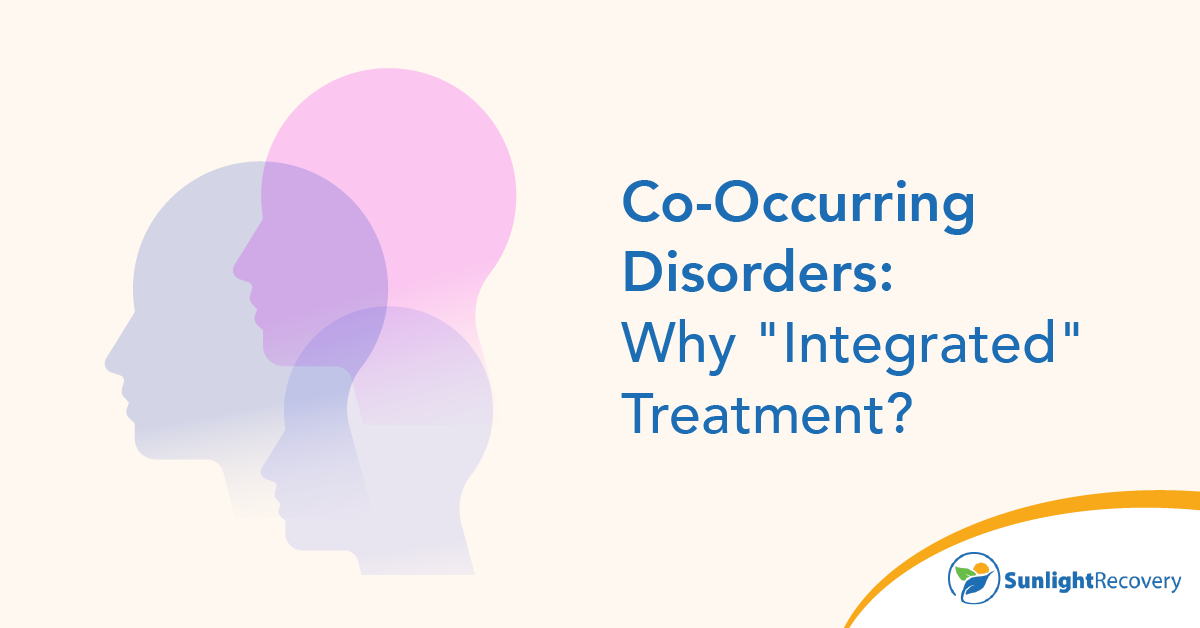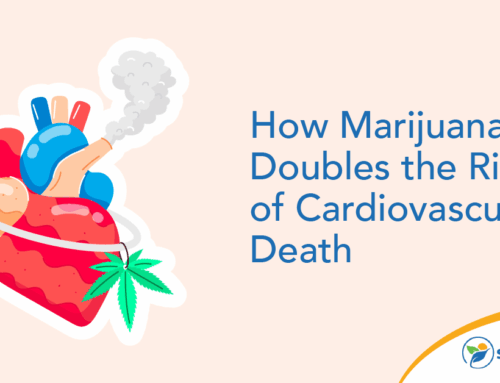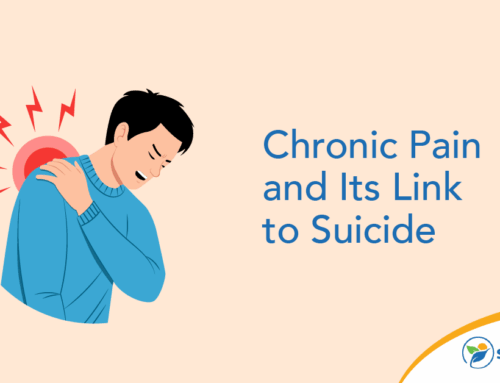When it comes to co-occurring disorders, integrated treatment is considered the most effective remedy available. But what is integrated treatment? Essentially, this type of treatment plan involves addressing both substance abuse issues and mental health challenges simultaneously in a way that increases the likelihood of long-term success.
What Are Co-Occurring Disorders?
Co-occurring disorders involve a diagnosis of both a mental health issue and a substance use disorder in the same individual. The diagnosis of a mental health issue increases the likelihood of a person developing a problem with drug or alcohol use and vice versa. According to the 2022 National Survey on Drug Use and Health, approximately 21.5 million American adults have a co-occurring disorder.
Mental health issues that commonly co-occur with SUDs include depression, anxiety, post-traumatic stress disorder and schizophrenia, but almost any mental health condition can be diagnosed along with substance abuse. Sometimes co-occurring disorders are referred to as a dual diagnosis, but it’s possible to have more than one mental health condition in addition to an issue with drug or alcohol use.
Why Treating Only One Condition Often Fails
Mental health conditions and SUDs often affect each other. A person may use drugs or alcohol to dampen the emotional turmoil of depression, PTSD or anxiety. Someone with a substance addiction is more likely to develop mental health issues or experience an increase in symptoms of an existing condition when using alcohol or drugs. If any individual enters treatment for only one condition while leaving others untreated, it can hamper their recovery or increase the possibility of a relapse later.
Another issue with treating mental health and SUDs separately is the inconvenience of uncoordinated care. Having to travel to different locations or providers to get treatment for each condition makes it harder for a person to stay on track during recovery. If the providers aren’t communicating, treatment plans could include conflicting information or contradictory requirements. Scheduling conflicts could lead to missed appointments. When treatment is inconvenient, a person is more likely to simply quit.
What Is Integrated Treatment and How Does It Work?
An integrated treatment plan focuses on the whole person, not just a single symptom or issue. This means treatment addresses both the substance abuse issue and any mental health disorders.
Integrated treatment starts with an initial assessment to identify all existing mental health challenges and substance abuse issues. Multiple health professionals work together to develop a comprehensive plan and coordinate treatment.
Treatment typically involves a combination of therapy, peer group meetings, medication and support services. For some people, an initial detoxification period is included in the treatment plan to provide a safe, monitored withdrawal process before beginning therapy sessions. Because treatment is tailored to the individual, specific treatment methods may vary and change over time.
The individual’s personal recovery goals are an important aspect of integrated treatment. During this type of treatment, therapists can help you identify your intrinsic motivations and set personal goals for managing your mental health. Therapy sessions teach you how to cope with real-world scenarios and give you a mental toolkit for addressing future challenges.
Participating in an integrated treatment program in an inpatient setting can make it easier to focus on recovery because there’s no need to worry about meals and shelter during your stay. Since on-site medical professionals and staff members are trained to deal with a dual diagnosis, all services are coordinated.
Benefits of Addressing Mental Health and Substance Use Together
The holistic approach of integrated treatment offers benefits over treating mental health and SUDs separately. This coordinated treatment tends to have better outcomes, including a lower risk of relapse. Focusing on the whole person also helps improve quality of life, since treatment goals are personalized. The ultimate aim of an integrated treatment plan is to help the individual stop using drugs or alcohol and to stabilize their emotional and mental health for the long term.
An integrated approach to treating co-occurring disorders offers specific benefits:
- Treatments can take place at the same location.
- The care team has experience with both mental health and SUDs.
- Consistent goals are provided throughout treatment.
- Multidisciplinary treatment team members can share skills and information.
- Chance of long-term recovery is better.
- Quality of life is improved.
In addition to the immediate benefits of an integrated treatment approach, this type of plan can also be more cost-effective and time-saving compared to treating issues individually. Integrating treatment reduces redundancies by having the same professionals treat both conditions. Instead of seeing separate therapists for mental health issues and drug or alcohol use, you can discuss both these issues with the same therapist.
Evidence Supporting Integrated Approaches
Treating each aspect of a dual diagnosis separately used to be the standard of care, but recent research highlights the benefits of taking a comprehensive, integrated approach. A 2023 review of research studies found integrated treatments are as effective or better than standard methods targeting one issue at a time.
Additionally, a 2019 study on military veterans with dual diagnoses of PTSD and a SUD found those who entered an integrated treatment program achieved improvements in both conditions.
How to Find a Quality Dual-Diagnosis Program
Finding an integrated treatment program that tackles all aspects of a dual diagnosis can be a challenge. The specific symptoms you experience and their severity can affect your care plan. This makes it vital to choose a program that provides individualized care, rather than one with a cookie-cutter approach that’s expected to work the same for everyone. An integrated program should also include a combination of medical treatments, therapy, group sessions and support for your overall well-being. Ask about aftercare programs as well, since post-treatment support can help reduce the likelihood of relapse.
If you’re ready to take the first step toward recovery with an integrated treatment plan that addresses both your mental health and substance use, contact us today at Sunlight Recovery.







